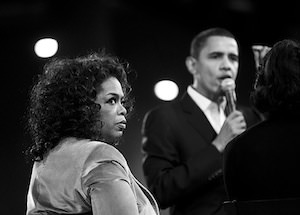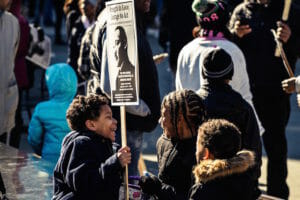Weaker Social Networks a Cause of Black Unemployment, Study Finds
Fresh research has convinced scholars that even with progress in education, the black jobless rate in the United States remains twice that of whites because whites are typically better connected to people who can make introductions and are more likely to hear about job opportunities.
Fresh research has convinced scholars that even with progress in education, the black jobless rate in the United States remains twice that of whites because whites are typically better connected to people who can make introductions and are more likely to hear about job opportunities.
“It is surprising to many people how important job networks are to finding work,” said Deirdre A. Royster, a sociologist at New York University. “The information they provide help people make a good first impression, get through screening and get hired.”
By major measurements, African-Americans have been twice as jobless as whites since the early 1970s. The Bureau of Labor Statistics in 2011 put the unemployment rate for blacks with a bachelor’s degree at 7.1 percent, compared with 3.9 percent for whites. Similarly, black workers with just a high school education were jobless at a rate of 15.5 percent. Whites were unemployed at a rate of 8.4 percent.
In computer and mathematical occupations, which job training officials report are difficult to fill, the jobless rate was 8.1 percent for blacks and 4.1 percent for whites. The construction industry, which was hit hard by the recession, saw blacks unemployed at 30.4 percent, compared with 15.3 percent for whites.
The disadvantage is undoubtedly a legacy of roughly two centuries of racial discrimination in the United States. Some African-Americans, such as Oprah and President Obama, have for particular reasons been able to break free of the cycle, but many blacks remain members of social and economic networks that have not been assimilated into those enjoyed by middle- and upper-class whites.
— Posted by Alexander Reed Kelly.
Your support matters…The Washington Post:
In her research, Royster followed the experiences of a group of similarly situated black and white men, all graduates of the same vocational school and who sought jobs in the same areas. She screened the men for things that might normally affect their employability: values, work ethic and performance. It turned out that the white men did much better getting jobs, which she said grew in part from their access to a more robust network of contacts.
“It just happens to be the case that if you are a white guy you are more likely to know people who have access to a certain set of jobs,” she said. “It has to do with becoming part of a network of reciprocity.”
Independent journalism is under threat and overshadowed by heavily funded mainstream media.
You can help level the playing field. Become a member.
Your tax-deductible contribution keeps us digging beneath the headlines to give you thought-provoking, investigative reporting and analysis that unearths what's really happening- without compromise.
Give today to support our courageous, independent journalists.






You need to be a supporter to comment.
There are currently no responses to this article.
Be the first to respond.